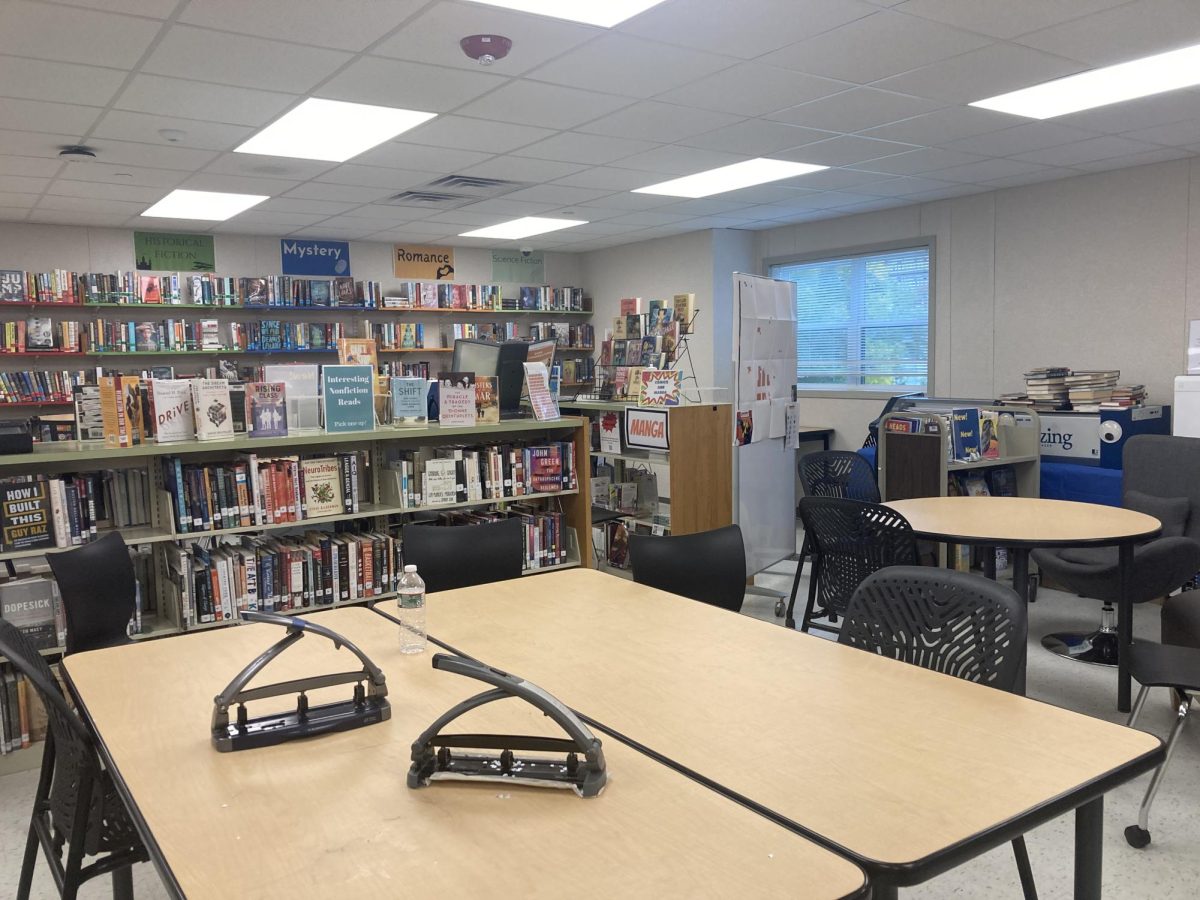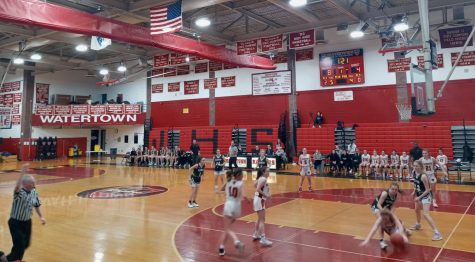It’s time for summer homework … but why?
While Watertown High students prepare for the annual struggles, teachers explain the reason behind it
Raider Times photo / Naomi Baker
“Moby-Dick” is part of the summer reading this year for some classes at Watertown High School.
June 18, 2021
Every student knows the feeling of dread that the words “summer homework” invokes. Every spring as school comes to a close, kids are greeted by mountains of extra work they are expected to complete, during what is supposed to be a relaxing break from academics.
Why do teachers continue to assign this work? Why do educators expect teenagers to complete lengthy tasks? Why can’t summer just be fun?
Letting kids get a jump can be helpful in laying groundwork for the upcoming year, said Todd Robbins, the film, television, and radio production teacher at Watertown High School.
Dan Wulf, the 6-12 mathematics coordinator in Watertown, said, “[Summer homework] gives you, as a student, time to see, understand, and answer questions and go back to it to reacknowledge the work. Remind yourself of the completion. Try to enjoy or understand the work, rather than force yourself to absorb the information.”
According to Kraig Gustafson, the 6-12 social studies coordinator in Watertown, “For the regular and honors students I try to assign experiential-based assignments. Boston is so full of historical knowledge so it would be a waste not to go see it. I am so shocked at how many students have never really traveled around the city. AP students need to prepare for the exam, so it is more traditional academic work.”
Adrienne Eaton, lead guidance counselor at WHS, said, “AP teachers have less time to teach than other classes, because of the nationwide AP testing and other schools starting earlier than others gives teachers more or less time to teach the lessons. So preparing the students and getting them ahead on a unit gives more time to the teacher for more things during the school year.”
Although some teachers appreciate preparing kids for the upcoming year, Matt Rose, WHS science teacher said, “I give summer assignments, not because I want to, but because I have to.”
According to a New York Times article from August 2009, summer homework helps students to prepare for the next school year, helps them retain information from last year, and gives teachers an idea of what students know. Math homework can be especially beneficial because students’ math scores tend to dip more than ELA since day-to-day life provides more opportunities for practicing reading skills than math.
However, the same article argues that summer homework causes added stress on students. Countering the argument of keeping information fresh in kids’ minds, it is pointed out that if a brief review of subject matter is not sufficient in reminding students of a certain concept, perhaps it reflects poorly on the original teaching of the content. More homework also means less time for students to engage in physical activities, as well as less time for social interaction and development of social skills. Students are also more likely to fully comprehend information if they are motivated and engaged by the assignment. No matter how well-constructed an assignment is, few students are likely to be excited to complete it when it encroaches on their break.
“The math packets usually cause me the most stress,” said WHS 10th-grader Eden Salley. “The material is easy but they are so long. This makes it seem like a daunting task and I don’t usually get around to it until very late into the summer despite their low difficulty level. They take up a lot of time without reminding me of skills. I think that I would benefit greatly from shorter packets. Even 20 or 30 pages is better than 50.”
Students admit that some assignments are effective.
“Probably for history how we had to go to a historical place and write about it. That one was pretty fun, it didn’t even feel like summer homework,” said Ashley Leal, another WHS 10th-grader.
As for how the summer homework is constructed, Jennifer MacDonald, the AP environmental science at WHS, said, “My goal is not to give a pile of work, rather it is to prepare students prior to a busy school year and to get them excited to learn about environmental issues and solutions. I also enjoy speaking with parents at fall conferences and hearing that the whole family watched the film together — that way I feel that I am reaching a wider audience and helping spread awareness about current environmental issues.”
English teacher Malcom Cooke said the assignments come down to the teachers’ personal preference, as they try to get a baseline for skills and motivation. “The philosophy is that someone taking an honors class will work for it and that they are up for the challenge,” he said.
Done well, summer homework can have lots of positive moments.
“I personally love the scavenger hunt component of the APES summer assignment,” said MacDonald. “I get to see pictures of students hanging out and doing fun things together over the summer, and I enjoy discussing some of their experiences in the first days of class.“Some students get inspired to volunteer for cleanups or to try a vegan or vegetarian diet for a day. I think any time you have a chance to try new things, it can lead to a positive experience. I believe I would have enjoyed this type of assignment when I was in high school, so I hope my students do as well!”
However, when it comes to summer homework, students tend to share the same point of view. WHS ninth-grader Marwa Kabir has an idea for the teachers:
“Don’t give it at all.”
–June 18, 2021–



















